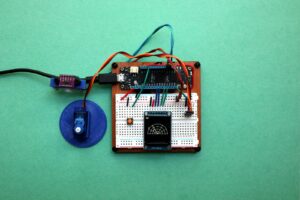The Beginnings of IoT: Inspiration and Initial Successes
Pioneering Businesses and the Birth of IoT
The early business adoption of IoT applications was driven by visionary companies recognizing the potential of interconnected devices to revolutionize their operations. In the late 1990s, businesses were inspired by the promise of increased efficiency, cost savings, and innovative capabilities that IoT technologies could offer. These early adopters, often in sectors like manufacturing, logistics, and utilities, saw the integration of IoT as a means to enhance their operational processes. They began experimenting with networked sensors and devices to monitor equipment, track inventory, and optimize supply chain management. This pioneering spirit laid the groundwork for IoT to move from theoretical concepts to practical, impactful applications in the business world.
The initial successes of these forward-thinking companies proved pivotal in demonstrating the tangible benefits of IoT. By integrating connected devices into their operations, they achieved significant improvements in productivity and cost efficiency. For example, manufacturing firms utilized IoT sensors to monitor machinery performance, predict maintenance needs, and reduce downtime. Logistics companies employed IoT tracking systems to manage fleet movements and optimize delivery routes, leading to faster and more reliable services. These practical applications not only validated the potential of IoT but also set a precedent for other businesses to follow, encouraging broader adoption across various industries.
Transformative Impact on Business Operations
The transformative impact of IoT on business operations became increasingly evident as more companies embraced these technologies. In Saudi Arabia and the UAE, cities like Riyadh and Dubai emerged as leaders in adopting IoT solutions, leveraging modern technology to enhance urban infrastructure and public services. Businesses in these regions, inspired by the successes of their peers, integrated IoT applications to streamline processes and improve service delivery. The adoption of IoT in industries such as healthcare, retail, and energy management highlighted its versatility and broad applicability. In healthcare, IoT-enabled devices facilitated remote patient monitoring and improved the efficiency of medical services. Retailers utilized IoT to manage inventory in real-time, enhancing customer experience and reducing operational costs.
The broader adoption of IoT also spurred advancements in related technologies, including artificial intelligence (AI) and blockchain. AI-driven analytics enabled businesses to derive deeper insights from the vast amounts of data generated by IoT devices, enhancing decision-making and predictive capabilities. Blockchain technology provided a secure and transparent framework for managing IoT data, ensuring data integrity and fostering trust in connected ecosystems. These synergistic advancements underscored the importance of IoT as a foundational element in the digital transformation journeys of businesses across various sectors.
Leadership, Management, and Future Prospects
Leadership and Executive Coaching in the IoT Era
Effective leadership and management are crucial for navigating the complexities of IoT adoption and integration. As businesses continue to explore the potential of IoT, executive coaching services have become increasingly valuable in guiding leaders through this technological transformation. Coaching provides leaders with the skills and insights needed to manage IoT projects, foster innovation, and drive business success. In the context of Saudi Arabia and the UAE, where rapid technological advancements are a priority, executive coaching helps leaders stay ahead of the curve and effectively implement IoT strategies.
Leaders must also focus on fostering a culture of continuous learning and adaptability within their organizations. As IoT technologies evolve, so do the skills and knowledge required to leverage them effectively. By promoting ongoing education and professional development, leaders can ensure that their teams are equipped to handle the challenges and opportunities presented by IoT. This proactive approach not only enhances organizational resilience but also positions businesses to capitalize on emerging trends and innovations in the IoT landscape.
Future Prospects and Strategic Considerations
The future prospects of IoT are vast, with continued advancements poised to unlock new possibilities for businesses. In the coming years, we can expect to see increased integration of IoT with generative artificial intelligence, enabling more sophisticated and autonomous systems. These developments will further enhance the capabilities of IoT applications, driving efficiencies and creating new business models. For instance, generative AI could optimize IoT-driven manufacturing processes by designing more efficient production schedules and reducing waste.
Businesses must strategically plan for these future advancements by investing in research and development and forging partnerships with technology providers. In regions like Riyadh and Dubai, where innovation is highly encouraged, businesses can leverage government support and incentives to accelerate their IoT initiatives. By aligning their strategies with national and regional technology agendas, companies can ensure they remain competitive and at the forefront of technological advancements.
In conclusion, the early business adoption of IoT applications marked a significant milestone in the evolution of modern technology. The initial successes of pioneering companies set the stage for broader adoption, demonstrating the transformative impact of IoT on business operations. As businesses continue to explore and integrate IoT, effective leadership, continuous learning, and strategic planning will be essential in navigating the evolving landscape and capitalizing on future opportunities.
—
#IoT, #earlyIoTadoption, #connecteddevices, #technologytrends, #executivecoaching, #businesssuccess, #AIintegration, #blockchain, #digitaltransformation, #leadershipskills, #projectmanagement













